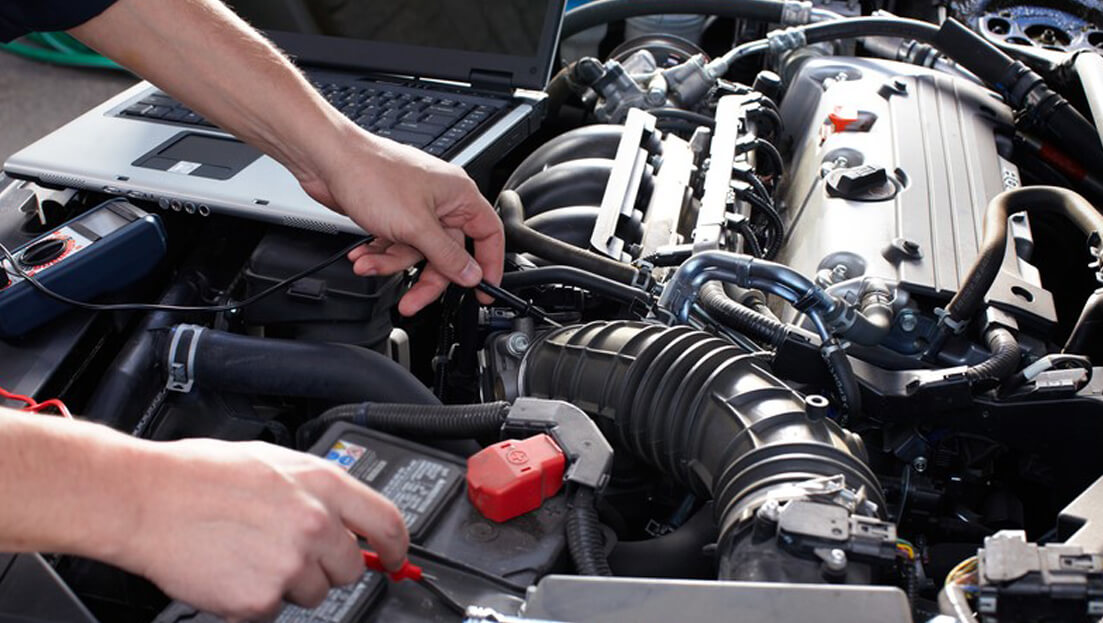Are you looking for the best tips for maintenance? Then you’ve come to the right place! It doesn’t matter whether you are a weekend enthusiast or a professional racer, you should always take care of your car to ensure its optimal performance.
The best way to do that is by following proper maintenance and regular check-ups. While your mechanic can check everything for you, sometimes it pays off to go over their head and perform some of these simple tasks yourself.
Below, you will find useful tips that will help you with the best tips for maintenance and keeping it in tip-top condition. Plus, we’ll even tell you what the best tips are, so keep reading to learn more!
Keep The Car Running Smoothly
When it comes to car maintenance, most people only focus on cleaning and washing their vehicles. The problem is that if you don’t pay attention to everything your car needs, you could be inviting trouble down the road.
To make sure your car continues running smoothly and efficiently, follow these tips. Schedule an oil change regularly: Oil changes are one of those things that you should do regardless of how new or old your car is.
As a general rule of thumb, try to get an oil change every three months or 3,000 miles (whichever comes first). This will keep any gunk from building up in your engine and ensure that it’s running properly at all times. Not sure when your last oil change was?

Change The Oil Regularly
The regular oil change is a mainstay of car maintenance, but it’s just as important as you think. The life of your engine depends on how often you change your oil—every 3,000 miles is recommended by most mechanics—and every time you do so, you can rest assured that your car will last longer.
Whether it’s 3 months or 3 years, changing your oil consistently will ensure that your car runs optimally in between major services and repairs.
The best part? It only takes a few minutes at most to complete! And while there are many types of oil available now—for example, synthetic oils last much longer than traditional ones do—you should stick with what works best for your vehicle.
A Brief Background About Engine Oil
Engine oils provide a protective layer around an engine’s moving parts, preventing metal-to-metal contact and reducing friction. They also keep dirt and other debris from entering your engine while it’s operating.
Of course, you need to know what kind of oil you should be using in your vehicle if you want it to continue running smoothly—there are different types of oils that are better suited for specific vehicles.
Knowing how long each type lasts is equally important so that you can replenish your supply before you run out. Here’s a brief overview of engine oils.
A Closer Look At Synthetic Engine Oils
Synthetic engine oils, or blends of conventional and synthetic oil, offer a mix of better performance and longer-lasting longevity.
They typically cost more than conventional oils but are often worth it. How do you know if your car requires synthetic? The best rule of thumb is to refer to your owner’s manual.
Manufacturers will list any special requirements in their manuals, so consult your manual to determine whether a synthetic blend is recommended.
The Best Tips You Should Know Before Changing Engine Oil
Most cars now come with long-life oil or have it as an option. It’s not ideal, but with all of that good driving you’ve been doing, your engine probably doesn’t need it changed very often—except in extreme cases.
Check your car’s owner manual to see how often you should change your oil, and if it doesn’t say anything, plan on replacing it every 5,000 to 7,500 miles (depending on driving conditions).
Some signs that it might be time include decreased engine power or degradation in fuel economy. But don’t just go by when your last oil change was; keep a regular eye on things like weather conditions and how many miles you drive each week.
Things To Remember When Changing Engine Oil
If you’re changing your engine oil, here are a few things to remember: Use enough oil to provide at least one quart of extra capacity. If you’re using 6 quarts of oil, add 7 or 8, and if you’re using 5 quarts, use 6 or 7.
Cold temperatures make it harder for fluids to penetrate engine parts, so be sure to warm up your car before adding new engine oil.
Avoid overfilling your engine with too much oil—just because there is room in a container doesn’t mean there is room in your car! Check out our list of best tips on how to change your car’s engine oil and filter.
Read also: What Causes Flickering Car Lights and How Can I Fix It?
Get Regular Services Done at Trusted Garages
Regular maintenance is a key part of car ownership. A few hundred dollars invested in-car services can save you thousands down the road by preventing major problems that lead to breakdowns, hefty repair bills, and even totaled cars.
Take care of your vehicle—it will take care of you. If you don’t have a trusted mechanic nearby, find one with reviews on Yelp or Angie’s List.
Both sites offer consumer-driven ratings on businesses and services, so you can pick and choose based on what other people have said about certain garages.
Use Approved Parts and Tools
The parts and tools that mechanics use to fix your car are much more expensive than those available at auto-parts stores.
Cheap, unauthorized parts often lead to more damage down the road, which could cost you significantly more in repairs.
Don’t even try to fix things yourself—use only approved parts and proper tools when fixing your car. By following these tips, you’ll keep your car running smoothly and save yourself a lot of headaches in the long run.
Check Air Pressure Once A Month
Proper tire pressure can increase fuel efficiency by 3% and cut down on needless wear and tear. You should check your tires when they’re cold (i.e., before you drive somewhere).
Tire pressure increases naturally when they get hot, so make sure to check them in an area that isn’t sweltering.
Typically, most cars have a sticker on their doorframe or glove compartment that indicates what psi range is ideal for your car’s tires. If you can’t find one of these stickers, try googling what is my car’s tire psi?
Avoid Bad Weather Conditions
Driving in rain or fog makes visibility low and increases your chances of getting into an accident. One of the best ways to maintain your car, then, is to avoid driving during severe weather conditions.
Keep an eye on forecasts and have a backup plan in case they’re not as promising as you hoped they’d be. It’s also important to keep your windshield wipers in good condition so that you can see clearly when it’s raining.
And if it is raining or snowing, use extra caution, keep your distance from other cars and make sure you’re able to stop quickly should something happen.
If your tires are old or worn out, you’ll be less likely to get stopped in time if heavy weather sets in unexpectedly.
Do An Overall Check-Up Twice A Year
Twice a year, it’s wise to take your car in to have it checked out by a professional. A mechanic will tell you if anything is wrong with your car, and if so, they can offer recommendations on how to fix those problems.
At the very least, they will inspect any routine services (such as oil changes) that you may be overdue for—and they can do it while you wait!
Plus, many places like Jiffy Lube give free courtesy checks every few months so you don’t have to worry about remembering when something should be inspected.
It also helps make sure that nothing has gone wrong with your vehicle that could end up costing money down the road.
Conclusion
These simple tips will help you keep your car in great condition so it lasts as long as possible. There is a reason cars cost more than ever—it’s because they require much more best tips for maintenance and care to last as long as possible, meaning you don’t have to invest in a new one as quickly.
But even if you can’t afford expensive repair bills, you can still take some basic steps to make sure your vehicle lasts for many years.






